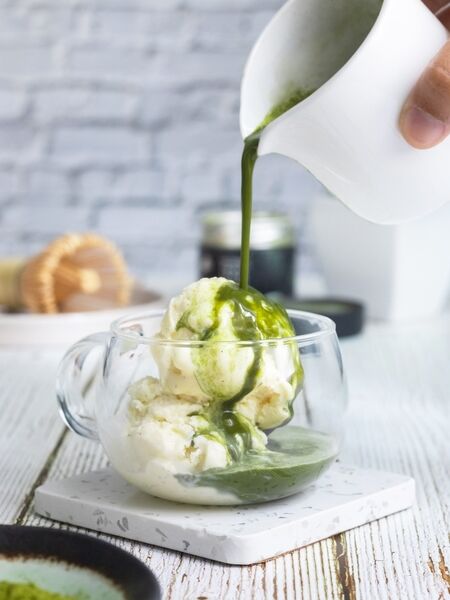How the Matcha Craze Helps Tea Shops

In recent years, matcha has transformed from a niche Japanese tradition into a global beverage phenomenon. From lattes and smoothies to desserts and skincare, matcha is everywhere—and that’s good news for tea shops. The rise of this vibrant green tea powder has created new opportunities for tea retailers to attract customers, diversify their offerings, and strengthen their market presence.
Riding the Wave of Wellness
One of the driving forces behind matcha’s popularity is its strong association with health and wellness. Rich in antioxidants, amino acids like L-theanine, and naturally occurring caffeine, matcha offers consumers an appealing alternative to coffee. Health-conscious customers are actively seeking functional beverages, and matcha checks all the boxes: energy without jitters, focus without crashes, and a reputation for overall wellness benefits. For tea shops, this presents a golden opportunity to meet demand and position matcha as both a premium product and a lifestyle choice.
Expanding Your Menu
Matcha’s versatility makes it a perfect addition to a tea shop menu. Beyond the traditional whisked bowl of matcha, shops can offer matcha lattes, iced matcha with fruit infusions, and seasonal specialties like matcha pumpkin spice or matcha peppermint mochas. Matcha also pairs beautifully with baked goods, giving tea shops a chance to cross-sell pastries or snacks that complement the drink. By incorporating creative matcha-based items, shops can appeal to younger demographics who crave Instagram-worthy and TikTok-friendly beverages while still honoring the authenticity of traditional preparation.
Driving Sales with Education
Many consumers are intrigued by matcha but unsure of how to prepare or enjoy it at home. This opens the door for tea shops to provide guidance and education—whether through in-store tastings, short classes, or helpful online content. Teaching customers how to whisk matcha, select the right grade, and explore its culinary uses not only drives sales but also builds customer loyalty. When shoppers feel more confident using matcha, they’re more likely to purchase premium products and return for refills.
Standing Out in a Competitive Market
In a crowded beverage landscape, offering high-quality matcha can set a tea shop apart. While coffee shops may carry a single matcha latte, specialty tea shops have the advantage of depth and expertise. By showcasing ceremonial and culinary grades, explaining sourcing stories, and highlighting the craftsmanship behind authentic Japanese matcha, tea shops can demonstrate authority and earn customer trust. This not only justifies higher price points but also reinforces the shop’s reputation as a go-to destination for tea lovers.
A Gateway to Broader Tea Appreciation
Finally, matcha can serve as a “gateway tea.” Customers who first come in for a trendy matcha latte may discover flavored teas, aromatic oolongs, or calming herbal blends during their visit. Once they have made the connection between quality tea and a satisfying customer experience, they are more open to exploring the wider world of tea. In this way, matcha becomes more than a sales driver—it becomes a powerful tool for building long-term relationships with tea drinkers.
The matcha craze isn’t just a passing trend—it’s a lasting movement with staying power. For tea shops, embracing matcha means tapping into health trends, expanding menus, educating consumers, and standing out in the marketplace. By leaning into matcha’s popularity, tea retailers can attract new audiences, boost sales, and strengthen their role as leaders in the specialty beverage space. Reach out for more matcha info: cynthia@adagio.com
